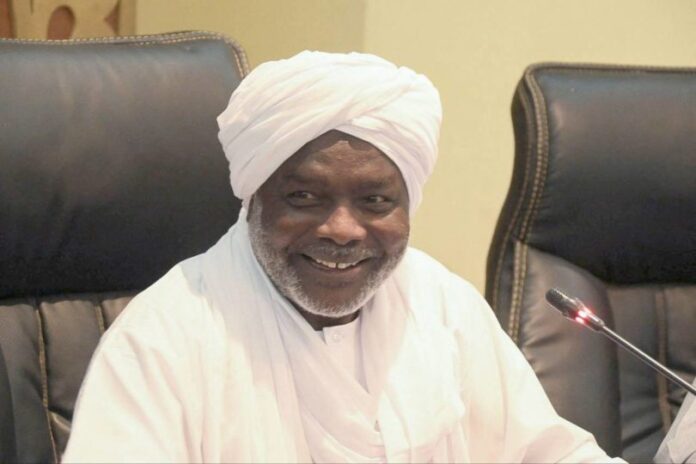Sudan’s Finance Minister, Jibril Ibrahim, has acknowledged that the war raging in Sudan since April 2023 has inflicted severe damage on the national economy, describing it as “very costly.”
Speaking during a meeting with members of the Sudanese diaspora in Moscow, Ibrahim revealed that the government lost about 80% of its public revenues after the capital, Khartoum, went out of its control forcing authorities to seek financial alternatives in other cities, most notably Port Sudan, which now serves as a temporary administrative capital.
Ibrahim said government revenues in Port Sudan initially stood at only 55 million Sudanese pounds, before later rising to around 900 billion pounds. Despite this improvement, he stressed that the amount remains insufficient to cover the costs of war or meet the growing humanitarian needs. He added that Sudan has not received any direct financial support from abroad, noting, “Perhaps some military assistance has arrived through other channels, but no single check—even for ten million pounds has reached the Ministry of Finance.”
Currency Strain and Inflation
Discussing the monetary situation, the minister insisted that the Sudanese economy has not completely collapsed, despite what he called widespread exaggerations. He attributed the steep decline in the national currency’s value to surging demand for foreign currency to fund military operations. The government, he said, was at times forced to borrow from the central bank to cover deficits, a move that worsened inflation and drove up prices.
According to Ibrahim, earlier forecasts predicted that the exchange rate could reach 10,000 pounds to the U.S. dollar by the end of the first year of war, yet Sudan remains able to import essential goods. He described these fiscal disruptions as “the natural consequences of war.”
Gold Trade and Diversification Plans
The minister also disclosed that the government is moving to regulate the gold trade—considered one of Sudan’s main sources of foreign currency. Tightening control over smuggling and ensuring exports go through official channels, he said, could meet a significant part of the country’s foreign exchange needs. The initiative forms part of a broader strategy to diversify state revenues amid diminishing external aid.
Energy and Reconstruction
On the energy sector, Ibrahim said Sudan currently produces about 25,000 barrels of oil per day. His visit to Russia, he added, aims to strengthen bilateral cooperation in oil production and electricity projects. Before the war, Sudan spent more than $1.65 billion annually on electricity subsidies; it now seeks to shift increasingly toward hydropower to reduce costs for both the government and citizens.
Highlighting reconstruction efforts, Ibrahim emphasized the importance of investing in critical infrastructure in preparation for postwar recovery. He called for the development of water, electricity, port, road, airport, and railway networks, describing these sectors as the backbone of any economic revival.
He added that agricultural production has improved compared with previous war years and praised the resilience of citizens striving to return to the capital despite persistent hardships.
In conclusion, the finance minister said that while Sudan’s economic situation remains extremely difficult, it is “better than expected,” reaffirming that the government continues to perform its duties despite the financial and administrative constraints imposed by the war.


